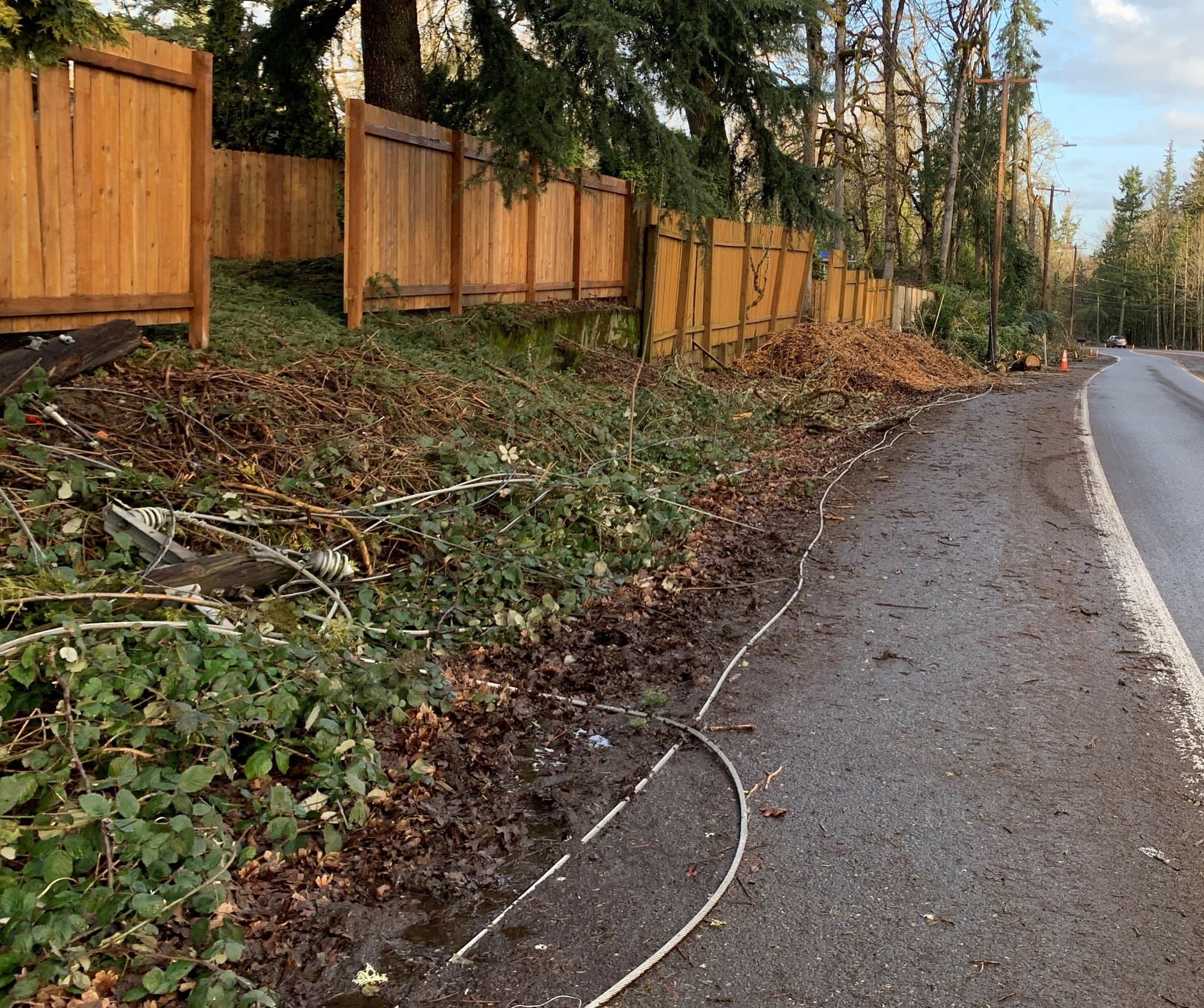Power outages, plane crashes and stocks
It was a difficult week for mid-February. Below average temperatures, snow, freezing rain and no power for almost 4 days.
The utility company stated it is was a record outage with falling trees and limbs requiring repair to over 200 miles of transmission lines.
Below is a photo of fallen lines found throughout our city. You can see the pole on the ground on the left.

As soon as power was regained our neighborhood group email representing 53 homes was abuzz with talks of generators, battery backups and energy storage.
The call to action is indisputable.
The frequency of outages SEEM to be on the rise.
Have you ever noticed that when a plane crash is reported your feelings on the safety of flying change temporarily?
Life feels more precious or dangerous when we pass by a severe car crash on a road we commonly drive.
It is normal to judge frequency by the ease with which instances come to mind, yet this is not accurate.
As an example, studies show people view tornadoes (following an event) as more frequent killers than asthma yet the latter cause 20x more deaths. There are countless examples of this.
Estimates of death are warped by recent events and/or media coverage.
Why does this matter?
This is a bias that results in decision making and judgements based on emotions. Emotions resulting from fear of risks that are on our minds because of recent events. In turn we grossly exaggerate minor threats. Terrorism is a good example of this.
Following are some ways to prevent this mental shortcut that results in our misjudgment of how probable or common an event is to take place:
· Dig Deeper – your friend just purchased a stock that multiplied 10x in 1 year so it seems that the likelihood of his/her next recommendation could provide the same result. The true probability of this is extremely low
· Ignore the Noise – We have a specific goal for addressing future outages. We do not want to get swayed into purchasing an expensive generator because our memories of the event are fresh in our minds.
· Understand your Risk Tolerance – A plane accident that has just taken place doesn’t mean flying just became riskier. Remember how you felt about flying before the incident and rely on that sentiment to base future decisions on the same matter.
· Ask for a second opinion – Ideally someone who isn’t swayed by the same recent event. They won’t be subject to this bias.
· Question yourself – Is this generator worth the money? Will this matter in 2 months? What is the cost of not making this decision?
The availability bias affects all of us. Our minds like to jump to conclusions.
Hopefully I’ve given you some reasons to pause and make sure your decision is based on real probabilities rather than what you just read or heard about.
Have a great weekend,
Karl
